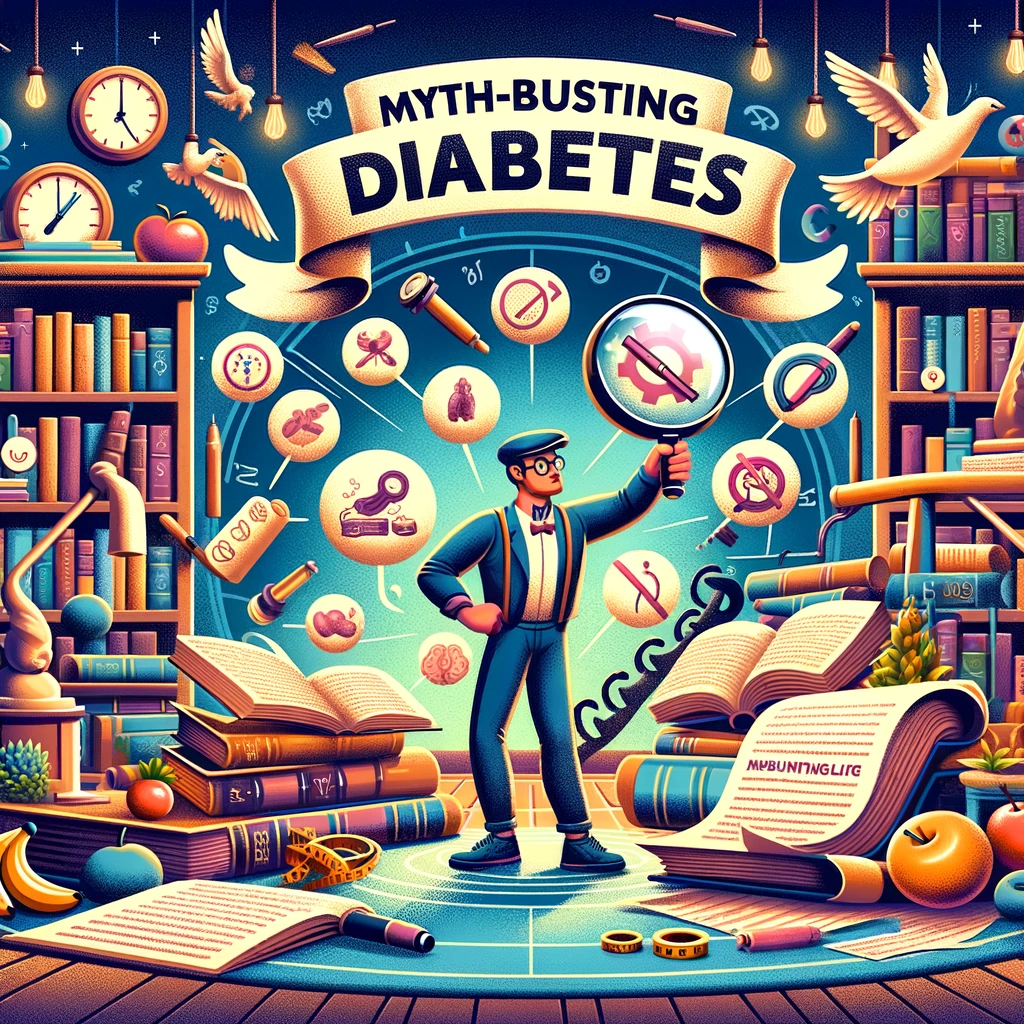
Myth 1: Type 2 Diabetes Is Only for the Elderly
Truth: While it’s true that your risk increases as you age, Type 2 diabetes has been diagnosed in younger adults, teenagers, and even children. Lifestyle factors, such as diet and physical activity levels, play a significant role, making it important for all ages to maintain healthy habits.
Myth 2: Eating Too Much Sugar Causes Type 2 Diabetes
Truth: This myth oversimplifies a complex condition. Type 2 diabetes results from a combination of genetic and lifestyle factors. While consuming excessive sugar can lead to weight gain, which is a risk factor, it’s not the sole cause. A balanced diet is key to prevention and management.
Myth 3: Type 2 Diabetes Is Not as Serious as Type 1
Truth: Type 2 diabetes is a chronic condition that, if not properly managed, can lead to serious health complications such as heart disease, kidney failure, and blindness. Both types of diabetes require careful management and should be taken seriously.
Myth 4: People with Type 2 Diabetes Must Avoid Sugar Completely
Truth: Balance is the operative word. People with Type 2 diabetes need to manage their carbohydrate intake, but they don’t have to cut sugar out entirely. It’s about portion control and moderation, fitting sweets into a well-rounded diet plan.
Myth 5: If You’re Overweight, You Will Definitely Get Type 2 Diabetes
Truth: While being overweight is a risk factor, it’s not a definitive predictor of Type 2 diabetes. Many overweight individuals never develop the condition, and many people with Type 2 diabetes are at a normal weight or only moderately overweight.
Myth 6: You Can Feel If Your Blood Sugar Levels Are High
Truth: Not always. Some people with Type 2 diabetes may not experience any symptoms, even when their blood sugar levels are high. Regular monitoring and check-ups are crucial for managing and detecting the condition.
Myth 7: Type 2 Diabetes Can Always Be Controlled With Diet and Exercise
Truth: Diet and exercise are critical components of managing Type 2 diabetes, but many people may also need medication to maintain blood glucose levels effectively. It’s a condition that varies greatly from person to person, requiring individualized treatment plans.
Myth 8: Only People with a Family History of Diabetes Get It
Truth: While having a family member with diabetes can increase your risk, it’s not a guaranteed outcome. Many individuals diagnosed with Type 2 diabetes have no family history of the disease. Lifestyle factors, such as physical inactivity and poor diet, along with other risk factors like age and ethnicity, also play significant roles in the development of Type 2 diabetes.
Myth 9: Insulin Use Means You’ve Failed to Manage Your Diabetes Properly
Truth: This myth can be particularly harmful as it stigmatizes insulin therapy, which is a vital treatment option for many people with Type 2 diabetes. The need for insulin does not signify failure but rather reflects the progressive nature of diabetes. Over time, the pancreas may produce less insulin, requiring some individuals to need insulin injections to manage their blood glucose levels effectively.
Myth 10: Diabetes Medications Will Prevent Blood Sugar Spikes Completely
Truth: Diabetes medications are designed to help manage blood glucose levels, but they’re not a cure-all solution. Diet, exercise, stress, illness, and other medications can all impact blood sugar levels. People with Type 2 diabetes need to monitor their blood sugar regularly and work closely with their healthcare team to adjust their management plan as needed, even when on medication.
